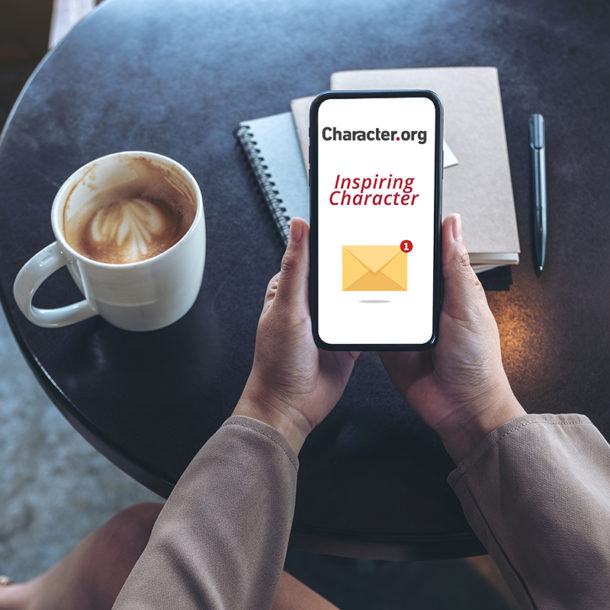By Dr. Arthur Schwartz
Our nation celebrated MLK Day this past Monday, the only federal holiday dedicated to volunteer service.
Professionally, I have been thinking a lot about service, as Character.org and the National Youth Leadership Council (NYLC), with funding from The School for Ethical Education, are currently collaborating on a publication tentatively titled Thinking About Service-Learning Through an Ethical Lens. It is quite an honor for our team to be working with NYLC, an organization widely regarded as the national expert on service-learning as a tool to engage young people.
I have also been reflecting on my own volunteering experience. As our two children grew up, I got involved in our township’s little league, first as a coach and then serving as the little league’s president. My wife volunteered countless hours at our children’s schools, as well as at a local food pantry.
But if I’m honest with myself, I regret that our adult children have yet to embody a “service mindset.” So far, throughout their 20s and now into their early 30s, our kids have been laser-focused on reaching their professional goals. Studies show they are not alone.
I’m not even sure “service” is the right word to use. Researchers are beginning to uncover that young people, especially during their teen years, have a fundamental need to contribute to others and their communities. For example, Professor Andrew Fuligni at UCLA argues that “adolescents as a group [is] primed to contribute to others.”
Other research has shown that “helping others” during adolescence is correlated with fewer health problems and less depression. Whether it’s providing support and companionship to the elderly or working at an animal shelter, researchers have shown that teens are significantly happier on days when they volunteer.
At Character.org, we envision a future where families, schools, after-school programs, houses of worship, and even sports teams have cracked the code on how best to inspire and equip every young person to develop their own “helping others” mindset. While some students will want to focus on political issues or social injustices, others will find meaning in tutoring younger students or visiting an older person on a regular basis. However, we know from the research, especially self-determination theory, that students need to be intrinsically motivated to help others rather than doing so simply because it’s a class requirement or a school-wide project.
At the heart of our hope and vision is Dr. King’s idea of a “Beloved Community.” Can we come together as a nation to ensure that every young person will have the opportunity, throughout their childhood and adolescence, to reflect on and honestly respond to what Dr. King believed was life’s most urgent question: “What are you doing for others?”
Author’s Note: I dedicate this post to Jim Clark, president of the Boys and Girls Club of America and the recipient of our 2023 John Winthrop Wright “Ethics in Action” Award. Jim has emphasized service to others through the organization’s Million Hours of Service initiative.
Stay Connected To Character
Would you like to receive Arthur’s weekly blog post?







0 Comments